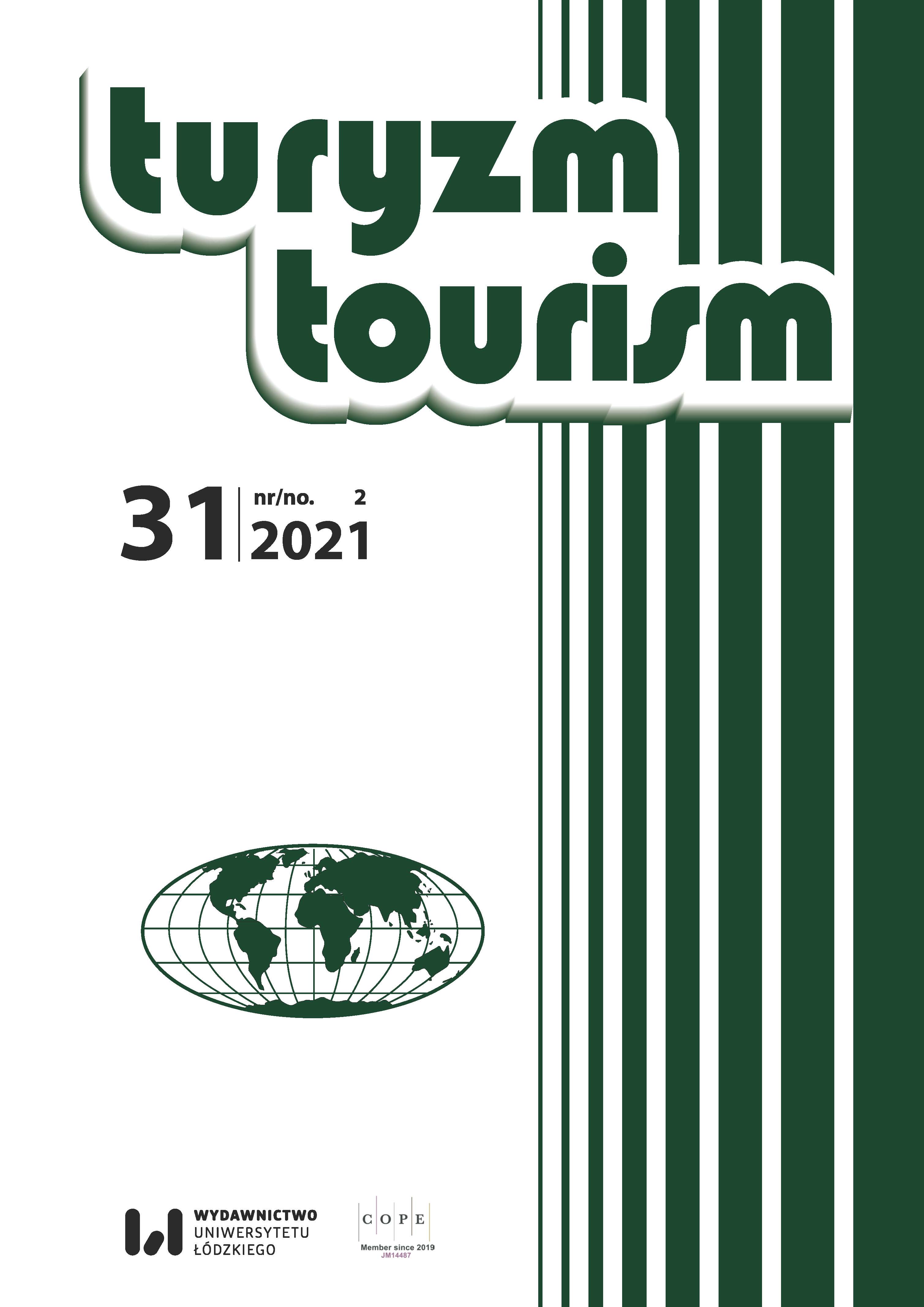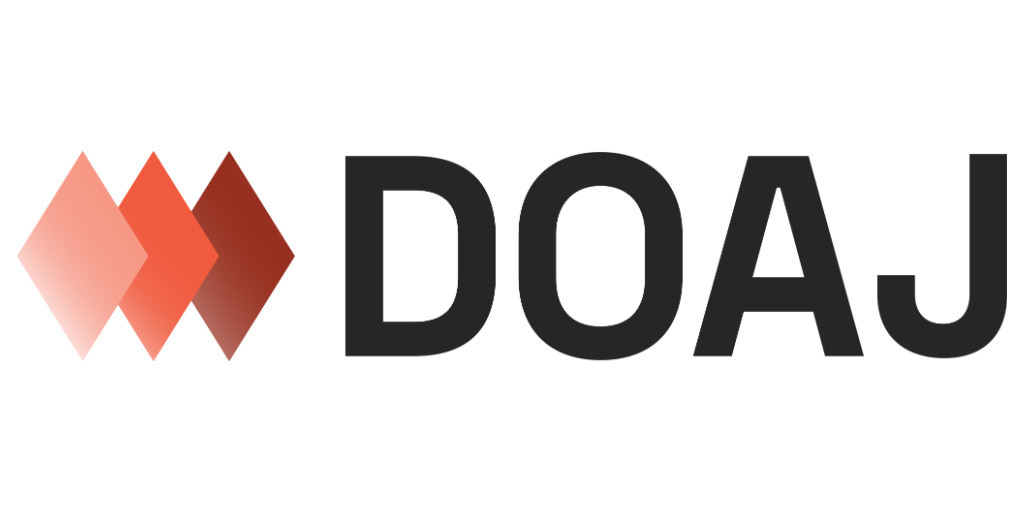The use of Facebook in marketing communication by local tourist organizations in Poland
DOI:
https://doi.org/10.18778/0867-5856.31.2.02Keywords:
social media, Facebook, local tourist organizations, promotion of regions, regional tourismAbstract
The aim of the article is to show to what extent local tourist organizations in Poland use their Facebook accounts for marketing communication. 84 out of 121 on the list published on the Polish Tourist Organization website participated in the study which was carried out using a diagnostic survey method. The results show that Facebook profiles are largely not run in accordance with the guidelines formulated in the literature and many organizations do not have their own account at all. Representatives of organizations declare that they are aware of the need for the greater involvement of social media in promotional activities but find such obstacles as a lack of financial resources and a lack of personnel who could professionally run them.
Downloads
References
Ammirato, S., Felicetti, A.M., Della Gala, M. (2014). Tourism destination management: A collaborative approach. In: E. Bayro-Corrochano, E. Hancock (eds), Progress in Pattern recognition, image analysis, computer vision, and applications (pp. 217–226). Berlin–Heidelberg: Springer International Publishing. https://doi.org/10.1007/978-3-662-44745-1_21
Google Scholar
DOI: https://doi.org/10.1007/978-3-662-44745-1_21
Borzyszkowski, J. (2013). Współczesne wyzwania destination management organizations (DMO). Prace Naukowe Uniwersytetu Ekonomicznego we Wrocławiu, 303, 49–57.
Google Scholar
Czernek, K. (2018). Organizacje partnerskie na jednym obszarze turystycznym – problemy i wyzwania. Ruch Prawniczy, Ekonomiczny i Socjologiczny, 75 (2), 201–215. https://doi.org/10.14746/rpeis.2013.75.2.15
Google Scholar
DOI: https://doi.org/10.14746/rpeis.2013.75.2.15
David-Negre, T., Almedida-Santana, A., Hernández, J.M., Moreno-Gil, S. (2018). Understanding European tourists’ use of e-tourism platforms. Analysis of networks. Information Technology & Tourism, 20 (1–4), 131–152. https://doi.org/10.1007/s40558-018-0113-z
Google Scholar
DOI: https://doi.org/10.1007/s40558-018-0113-z
Dębski, M. (2012). System POT–ROT–LOT w procesie promocji Polski jako destynacji turystycznej. Turystyka i Rekreacja, 9, 13–20.
Google Scholar
Drozdowska, M., Duda-Seifert, M. (2016). Turystyczne portale internetowe – wiarygodne źródło informacji? Turyzm/Tourism, 26 (2), 7–14. https://doi.org/10.18778/0867-5856.26.2.01
Google Scholar
DOI: https://doi.org/10.18778/0867-5856.26.2.01
Dwivedi, M., Yadav, A., Venkatesh, U. (2011). Use of social media by National Tourism Organizations: A preliminary analysis. Information Technology & Tourism, 13 (2), 93–103. https://doi.org/10.3727/109830512X13258778487353
Google Scholar
DOI: https://doi.org/10.3727/109830512X13258778487353
Escobar-Rodríguez, T., Grávalos-Gastaminza, M.A., Pérez-Calañas, C. (2017). Facebook and the intention of purchasing tourism products: Moderating effects of gender, age and marital status. Scandinavian Journal of Hospitality and Tourism, 17 (2), 129–144. https://doi.org/10.1080/15022250.2015.1137784
Google Scholar
DOI: https://doi.org/10.1080/15022250.2015.1137784
Facebook reports fourth quarter and full year 2019 results (2019). Retrieved from: https://investor.fb.com/investor-news/press-release-details/2020/Facebook-Reports-Fourth-Quarter-and-Full-Year-2019-Results/default.aspx (20.03.2020).
Google Scholar
Gryszel, P. (2010). Destination management company a kształtowanie konkurencyjności obszaru turystycznego. In: J. Sala (ed.), Konkurencyjność miast i regionów na globalnym rynku turystycznym (pp. 637–653). Warsaw: PWE.
Google Scholar
Hays, S., Page, S.J., Buhalis, D. (2013). Social media as a destination marketing tool: Its use by national tourism organisations. Current Issues in Tourism, 16 (3), 211–239. https://doi.org/10.1080/13683500.2012.662215
Google Scholar
DOI: https://doi.org/10.1080/13683500.2012.662215
Kachniewska, M. (2014). Big Data Analysis jako źródło przewagi konkurencyjnej przedsiębiorstw i regionów turystycznych. Folia Turistica, 32, 35–54.
Google Scholar
Kachniewska, M. (2017). Strategie marketingowe przedsiębiorstw i regionów turystycznych w mediach społecznościowych. Studia Oeconomica Posnaniensia, 5 (4), 183–207. https://doi.org/10.18559/SOEP.2017.4.9
Google Scholar
DOI: https://doi.org/10.18559/SOEP.2017.4.9
Kachniewska, M. (2019). Big Data Analysis as a tool for predictive intelligence and experience personalization in tourism. Przedsiębiorczość i Zarządzanie, 20 (2), 39–52.
Google Scholar
Kaplan, A.M., Haenlein, M. (2010). Users of the world, unite! The challenges and opportunities of social media. Business Horizons, 53 (1), 59–68. https://doi.org/10.1016/j.bushor.2009.09.003
Google Scholar
DOI: https://doi.org/10.1016/j.bushor.2009.09.003
Kruczek, Z., Wilkońska, A. (2019). Oceny rynku krajowego pod kątem obszarów produktów turystycznych Małopolski dla potrzeb małych i średnich przedsiębiorstw Małopolski. Cracow: Małopolska Organizacja Turystyczna.
Google Scholar
Kuchta-Nykiel, M. (2020). Ilu użytkowników korzysta obecnie z mediów społecznościowych? Na jakich urządzeniachrobimy to najczęściej? Retrieved from: https://socialpress.pl/2020/02/social-media-w-polsce-i-na-swiecie-najnowsze-dane (13.03.2020).
Google Scholar
Llodrà-Riera, I., Martínez-Ruiz, M.P., Jiménez-Zarco, A.I., Izquierdo-Yusta, A. (2015). A multidimensional analysis of the information sources construct and its relevance for destination image formation. Tourism Management, 48, 319–328. https://doi.org/10.1016/j.tourman.2014.11.012
Google Scholar
DOI: https://doi.org/10.1016/j.tourman.2014.11.012
Mar Gálvez-Rodríguez, M. del, Alonso-Cañadas, J., Haro-de-Rosario, A., Caba-Pérez, C. (2020). Exploring best practices for online engagement via Facebook with local destination management organisations (DMOs) in Europe: A longitudinal analysis. Tourism Management Perspectives, 34, 100636. https://doi.org/10.1016/j.tmp.2020.100636
Google Scholar
DOI: https://doi.org/10.1016/j.tmp.2020.100636
Mariani, M.M., Di Felice, M., Mura, M. (2016). Facebook as a destination marketing tool: Evidence from Italian regional Destination Management Organizations. Tourism Management, 54, 321–343. https://doi.org/10.1016/j.tourman.2015.12.008
Google Scholar
DOI: https://doi.org/10.1016/j.tourman.2015.12.008
Mariani, M.M., Mura, M., Di Felice, M. (2018). The determinants of Facebook social engagement for national tourism organizations’ Facebook pages: A quantitative approach. Journal of Destination Marketing & Management, 8, 312–325. https://doi.org/10.1016/j.jdmm.2017.06.003
Google Scholar
DOI: https://doi.org/10.1016/j.jdmm.2017.06.003
Migdal, M. (2015). PORADNIK współpracy JST – NGO sektora turystyki. Szczecin: [s.n.].
Google Scholar
Most popular social networks worldwide as of July 2021, ranked by number of active users (2021). Retrieved from: https://www.statista.com/statistics/272014/global-social-networks-ranked-by-number-of-users/ (20.08.2021).
Google Scholar
Pawlicz, A. (2015). Wykorzystanie mediów społecznościowych jako narzędzia marketingu turystycznego przez gminy leżące na terenach parków narodowych w Polsce. Ekonomia i Środowisko, 4 (55), 176–187.
Google Scholar
Pike, S., Page, S.J. (2014). Destination Marketing Organizations and destination marketing: A narrative analysis of the literature. Tourism Management, 41, 202–227. https://doi.org/10.1016/j.tourman.2013.09.009
Google Scholar
DOI: https://doi.org/10.1016/j.tourman.2013.09.009
Pino, G., Peluso, A.M., Del Vecchio, P., Ndou, V., Passiante, G., Guido, G. (2019). A methodological framework to assess social media strategies of event and destination management organizations. Journal of Hospitality Marketing & Management, 28 (2), 189–216. https://doi.org/10.1080/19368623.2018.1516590
Google Scholar
DOI: https://doi.org/10.1080/19368623.2018.1516590
POT (2020). Lokalne organizacje turystyczne. Retrieved from: https://www.pot.gov.pl/pl/o-pot/wspolpraca-z-regionami/lokalne-organizacje-turystyczne (15.03.2020).
Google Scholar
Sabate, F., Berbegal-Mirabent, J., Cañabate, A., Lebherz, P.R. (2014). Factors influencing popularity of branded content in Facebook fan pages. European Management Journal, 32 (6), 1001–1011. https://doi.org/10.1016/j.emj.2014.05.001
Google Scholar
DOI: https://doi.org/10.1016/j.emj.2014.05.001
Stefanowska, A., Lipko-Kowalska, M. (2017). Lokalne organizacje turystyczne jako czynnik rozwoju regionalnego – ocena funkcjonowania. Prace Geograficzne, 149, 101–121. https://doi.org/10.4467/20833113PG.17.012.6928
Google Scholar
DOI: https://doi.org/10.4467/20833113PG.17.012.6928
Szuberski, P., Akacki, D. (2019). Media społecznościowe jako narzędzie komunikacji rynkowej z klientem. Akademia Zarządzania, 3 (3), 102–114.
Google Scholar
Uchinaka, S., Yoganathan, V., Osburg, V.-S. (2019). Classifying residents’ roles as online place-ambassadors. Tourism Management, 71, 137–150. https://doi.org/10.1016/j.tourman.2018.10.008
Google Scholar
DOI: https://doi.org/10.1016/j.tourman.2018.10.008
Ustawa z dnia 25 czerwca 1999 r. o Polskiej Organizacji Turystycznej. Dz.U. 1999, nr 62, poz. 689 ze zm.
Google Scholar
Wanagos, M. (2011). Regionalne i lokalne organizacje turystyczne – system relacji i powiązań marketingu wewnętrznego. Zeszyty Naukowe Uniwersytetu Szczecińskiego, 663, 279–291.
Google Scholar
World Tourism Organization (2019). UNWTO guidelines for institutional strengthening of destination management organizations (DMOS): Preparing DMOs for new challenges. [s.l.]: UNWTO.
Google Scholar
Wozniak, T., Stangl, B., Schegg, R., Liebrich, A. (2017). The return on tourism organizations’ social media investments: Preliminary evidence from Belgium, France, and Switzerland. Information Technology & Tourism, 17 (1), 75–100. https://doi.org/10.1007/s40558-017-0077-4
Google Scholar
DOI: https://doi.org/10.1007/s40558-017-0077-4
Xiang, Z., Gretzel, U. (2010). Role of social media in online travel information search. Tourism Management, 31 (2), 179–188. https://doi.org/10.1016/j.tourman.2009.02.016
Google Scholar
DOI: https://doi.org/10.1016/j.tourman.2009.02.016
Zajadacz, A. (2017). Social media in the planning process of tourism development on a regional scale. Ekonomiczne Problemy Turystyki, 37, 127–146. https://doi.org/10.18276/ept.2017.1.37-10
Google Scholar
DOI: https://doi.org/10.18276/ept.2017.1.37-10
Zeng, B., Gerritsen, R. (2014). What do we know about social media in tourism? A review. Tourism Management Perspectives, 10, 27–36. https://doi.org/10.1016/j.tmp.2014.01.001
Google Scholar
DOI: https://doi.org/10.1016/j.tmp.2014.01.001
Downloads
Published
How to Cite
Issue
Section
License

This work is licensed under a Creative Commons Attribution-NonCommercial-NoDerivatives 4.0 International License.










